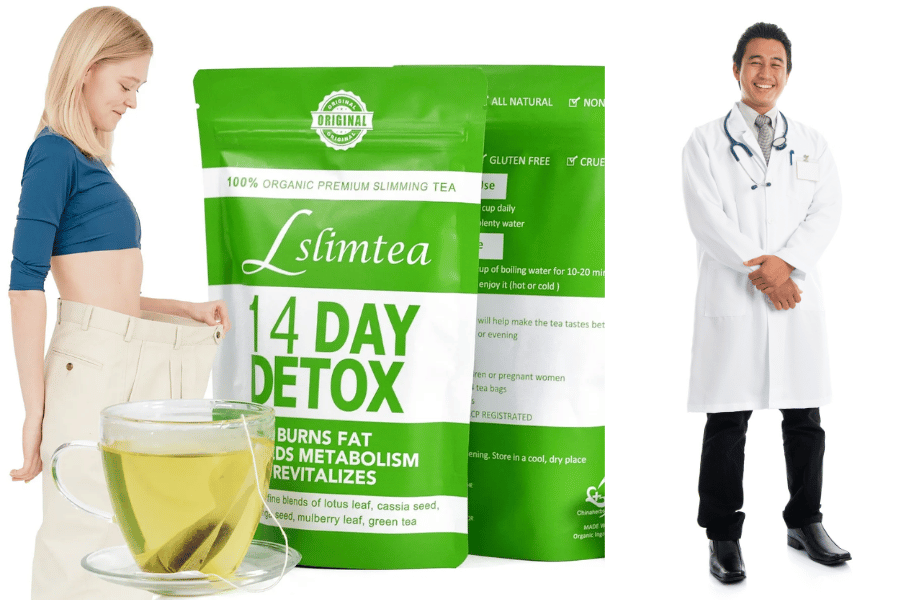Tea That Helps Burn Fat?As winter approaches, staying warm and managing weight become increasingly significant concerns for many. The cold weather often leads to decreased physical activity and increased consumption of high-calorie foods, posing challenges to weight management. However, a simple, comforting solution lies in a familiar beverage: tea. Not only does it provide warmth during the chilly months, but certain types of tea also offer potential benefits for weight loss. This article will delve into how various teas can contribute to weight maintenance and provide warmth in winter, alongside other health benefits.

Benefits of Tea for Winter Warmth
In the heart of winter, when the chill seeps into our bones, a steaming cup of tea becomes a refuge. The warmth of tea is not just physical; it is also a mental comforter, enveloping us in a sense of well-being during the cold and dreary days. Let’s explore the multifaceted benefits of tea that make it an essential part of our winter experience.
Providing Physical Warmth
The act of drinking hot tea raises our body temperature, offering a natural and cozy way to stay warm. This warmth is not just about the temperature of the beverage; it’s about how certain teas, like ginger or peppermint, create a warming sensation within the body, making them perfect for frosty mornings or chilly evenings.
Types of Teas and Their Warming Properties
Different teas bring their unique warming properties. For instance:
- Ginger Tea: Known for its warming and invigorating properties, ginger tea stimulates circulation, making it an ideal choice for cold days.
- Chamomile Tea: While more subtle, chamomile tea offers a gentle warmth that soothes and relaxes, perfect for unwinding after a long day.
- Black Tea: A classic choice, black tea provides caffeine and a robust flavor, excellent for energizing and heating up during winter mornings.
Tea as a Comfort and Relaxation Aid
Apart from physical warmth, tea plays a crucial role in promoting mental well-being. The ritual of brewing and sipping tea is a calming process, offering a moment of tranquility in our busy lives. It’s a way to pause, reflect, and relax—a form of self-care that is especially valuable during the sometimes stressful and hectic winter season.
In summary, the benefits of tea during winter extend beyond mere physical warmth. It’s about the experience, the comfort, and the mental peace it brings, making it an indispensable part of our winter routine.

Tea as a Fat-Burning Aid
While tea is widely cherished for its warmth and comforting qualities, it also harbors a lesser-known attribute – its potential as a natural fat-burning aid. This section delves into the scientific rationale behind this claim and highlights specific teas known for their weight-loss promoting properties.
The Science Behind Tea and Fat Loss
Recent studies have shed light on how certain teas can aid in weight loss. These teas contain natural compounds that may boost metabolism and enhance the body’s ability to burn fat. For instance, catechins found in green tea have been linked to increased fat oxidation and improved metabolic rate.
Thermogenic Properties of Tea
Some teas are known for their thermogenic effects, meaning they help the body produce heat by burning calories. This process, known as thermogenesis, contributes to an increased metabolic rate, which can aid in weight loss. Teas that exhibit these properties include:
- Green Tea: Rich in antioxidants and catechins, green tea is widely recognized for its metabolism-boosting and fat-oxidizing properties.
- Oolong Tea: This traditional Chinese tea is known for enhancing fat metabolism, thus playing a role in weight management.
- White Tea: Studies suggest that white tea may also possess thermogenic properties, contributing to its fat-burning capabilities.
The concept of using tea as a fat-burning aid is intriguing, offering a natural and enjoyable approach to weight management. By incorporating these teas into a balanced diet and lifestyle, individuals can potentially enhance their weight loss efforts while enjoying the many other benefits tea offers.
Key Teas for Weight Loss
Tea That Helps Burn Fat?When it comes to weight loss, not all teas are created equal. Certain types stand out for their ability to assist in the fat-burning process. This section will explore some of the most effective teas for weight loss, examining how they work and how you can integrate them into your daily regimen.
Green Tea: The Metabolism Booster
Green tea is often hailed as a weight loss superstar, and for good reason. It’s rich in antioxidants known as catechins, particularly epigallocatechin gallate (EGCG), which is believed to enhance metabolism and accelerate fat burning. Regular consumption of green tea has been linked to reduced body fat, especially in the abdominal area.
Oolong Tea: The Fat Oxidizer
Oolong tea, a traditional Chinese tea, strikes a balance between green and black tea in terms of oxidation. It’s recognized for its ability to increase fat oxidation rates, which means it helps the body to burn fat more effectively as fuel. Oolong tea also contains polyphenols that may block enzymes that build fat, making it a powerful ally in weight management.
Black Tea: The Gut Health Enhancer
Black tea is more oxidized than green or oolong teas, giving it a stronger flavor and darker color. Recent studies suggest that compounds in black tea may contribute to weight loss by improving gut health and increasing metabolism. It’s also a good source of caffeine, which can enhance energy expenditure and fat burning.
Incorporating These Teas into Your Routine
Incorporating these teas into your daily routine can be simple and enjoyable. Here are a few tips:
- Consistency is Key: Regular consumption is important for seeing benefits. Aim to drink 2-3 cups of these teas each day.
- Brewing Techniques: Steep the tea leaves for 3-5 minutes to extract the beneficial compounds effectively.
- Avoid Excess Sugar: To maximize health benefits, drink these teas without adding excessive sugar or cream.
By understanding the unique properties of these teas and incorporating them mindfully into your daily routine, you can enhance your weight loss efforts while enjoying their rich flavors.

Tea and Appetite Control
An often overlooked but significant aspect of tea is its ability to help control appetite, a crucial factor in weight management. This section discusses how tea can assist in reducing overeating, managing blood sugar levels, and offering practical advice for using tea as a tool for portion control.
How Tea Helps Control Appetite
Certain types of tea contain compounds that can help regulate hunger hormones and reduce cravings. For instance:
- Green Tea: Known for its catechins, green tea can influence the hormones that regulate hunger, helping to suppress appetite and prevent overeating.
- Mint Tea: The aroma of mint tea is believed to suppress appetite, making it a helpful beverage to consume before meals to reduce the risk of overeating.
Tea’s Role in Blood Sugar Regulation
Maintaining stable blood sugar levels is crucial for controlling hunger and reducing cravings. Some teas, particularly those rich in polyphenols, can help:
- Balance Blood Sugar Levels: Teas like green and black tea may influence insulin sensitivity, thus helping to stabilize blood sugar levels after meals.
- Prevent Sugar Crashes: By avoiding rapid spikes and drops in blood sugar, these teas can help prevent the sudden hunger pangs that lead to snacking.
Practical Tips for Using Tea as a Portion Control Tool
- Drink a Cup Before Meals: Having a cup of tea before meals can help you feel more full, reducing the likelihood of overeating.
- Choose Wisely: Opt for teas that are known for their appetite-suppressing properties, such as green tea or herbal teas like mint.
- Mind the Timing: Drinking tea between meals can also help to keep hunger at bay and prevent unnecessary snacking.
Incorporating tea into your daily routine as a means of appetite control can be a simple yet effective strategy for managing weight, particularly during the winter months when the temptation to overeat is often stronger.
Other Health Benefits of Tea
While tea’s role in weight management is significant, its health benefits extend far beyond just aiding in weight loss. This section highlights the various other advantages of regular tea consumption, particularly focusing on how these benefits contribute to overall well-being during the winter months.
Antioxidant Properties
Teas, especially green and black teas, are rich in antioxidants. These compounds play a crucial role in neutralizing harmful free radicals in the body, thereby reducing oxidative stress and the risk of chronic diseases.
- Green Tea: Known for its high concentration of catechins, green tea’s antioxidants can help protect against cell damage and promote overall health.
- Black Tea: Contains theaflavins and thearubigins, antioxidants that offer health benefits similar to those of green tea.
Improved Digestion and Immune Support
The winter season often brings with it digestive issues and a higher risk of colds and flu. Tea can be beneficial in this regard:
- Digestive Health: Herbal teas, such as peppermint and ginger tea, are known for their digestive properties. They can help ease digestive discomfort and promote gut health.
- Immune System Boost: Teas like echinacea and elderberry are known for their immune-boosting properties, making them ideal for consumption during the colder months.
Overall Well-Being
Regular tea consumption is associated with various aspects of well-being:
- Mental Health: The act of brewing and enjoying a cup of tea can be a relaxing ritual, reducing stress and anxiety levels.
- Heart Health: Some studies suggest that regular tea consumption is linked to a reduced risk of heart disease, owing to its antioxidant properties and positive effects on cholesterol levels.
In summary, the benefits of tea go beyond weight loss and warmth in winter. Its antioxidant properties, digestive and immune support, and overall contribution to mental and physical well-being make it an invaluable addition to your daily routine, particularly during the challenging winter months.

How to Brew the Perfect Cup of Fat-Burning Tea
Brewing a perfect cup of tea is an art that enhances its flavor and maximizes its health benefits, especially when it comes to teas known for their fat-burning properties. This section provides step-by-step instructions and tips to help you brew the most beneficial and enjoyable cup of tea.
Selecting High-Quality Tea
The first step to a great cup of tea is selecting high-quality leaves or bags. Opt for organic and fresh tea leaves if possible, as they retain more of the beneficial compounds compared to older, stale tea.
Brewing Instructions
Each type of tea has its ideal brewing method to extract the maximum flavor and health benefits:
- Green Tea: Use water that is just short of boiling (about 175°F or 80°C) to avoid burning the leaves, which can produce a bitter taste. Steep for 2-3 minutes.
- Oolong Tea: Use slightly hotter water (around 185°F or 85°C) and steep for 3-5 minutes. Oolong can often be re-steeped several times, with each steeping revealing different flavor notes.
- Black Tea: Use boiling water (212°F or 100°C) and steep for 3-5 minutes. Black tea is robust and can handle longer steeping times without becoming bitter.
Enhancing Flavor Naturally
To improve the taste without adding excess calories, consider natural additives:
- Lemon: A slice of lemon not only adds flavor but also aids in the absorption of antioxidants.
- Honey: If you need a sweetener, a small amount of honey is a natural option that can complement the flavors of the tea.
- Herbs and Spices: Adding herbs like mint or spices like cinnamon can enhance the flavor and potentially boost the health benefits.
Mindful Consumption
Remember, the key to enjoying tea’s health benefits is consistency and mindfulness. Drink tea regularly and take the time to savor each cup, making it a relaxing and enjoyable part of your day.
By following these brewing tips, you can ensure that each cup of tea is not just a treat for your taste buds but also a step towards better health and weight management.
Safety Considerations and Precautions
While tea is generally safe and beneficial for most people, it’s important to be aware of potential side effects and interactions, especially when consumed in large quantities. This section addresses these concerns, offering guidelines for moderate consumption and highlighting when it might be necessary to consult with a healthcare professional.
Potential Side Effects of Certain Teas
- Caffeine Sensitivity: Teas like black and green tea contain caffeine. Overconsumption can lead to insomnia, nervousness, or a rapid heartbeat, especially in caffeine-sensitive individuals.
- Tannins and Iron Absorption: The tannins in tea can interfere with the absorption of iron from food, which is a concern for individuals with iron deficiency or anemia.
- Herbal Tea Interactions: Certain herbal teas may interact with medications or have contraindications for people with specific health conditions.
Guidelines for Moderate Tea Consumption
- Monitor Caffeine Intake: Be mindful of your total daily caffeine intake, especially if you consume other caffeinated beverages or are sensitive to caffeine.
- Diversify Tea Selection: Rotate between different types of teas to avoid overconsumption of any one kind, which could lead to side effects.
- Listen to Your Body: Pay attention to how your body reacts to different teas, and adjust your consumption accordingly.
Consulting with a Healthcare Professional
- Pre-existing Medical Conditions: If you have health issues, particularly heart conditions, anxiety disorders, or gastrointestinal problems, it’s advisable to consult with a healthcare professional before increasing your tea consumption.
- Pregnancy and Breastfeeding: Pregnant and breastfeeding women should seek medical advice, as certain teas may not be recommended during these periods.
While tea is a wonderful, healthful drink with numerous benefits, moderation and awareness of its potential effects are key to enjoying it safely. By understanding and adhering to these safety considerations and precautions, you can make tea a healthy, enjoyable, and safe part of your daily routine.
Conclusion
In this article, we’ve explored the multifaceted role of tea in providing winter warmth, aiding weight loss, and offering various health benefits. Let’s summarize the key takeaways:
Key Takeaways
- Dual Role in Winter: Tea is not only a source of comfort and warmth in the cold months but also a potential aid in weight management.
- Fat-Burning Properties: Certain teas, like green, oolong, and black tea, are known for their metabolism-boosting and fat-burning properties, making them beneficial for weight loss.
- Appetite Control: Tea can help regulate appetite and reduce the tendency to overeat, which is especially useful during winter when we’re inclined to consume more calories.
- Holistic Health Benefits: Beyond weight management, tea contributes to overall health with its antioxidant properties, digestive and immune system support, and mental wellness enhancement.
- Moderation and Mindfulness: While tea offers numerous benefits, it’s important to consume it in moderation and be aware of any personal sensitivities or health conditions that may require consultation with a healthcare professional.
Encouragement for Readers
As we embrace the colder months, let’s not forget the simple yet profound benefits that a humble cup of tea can bring. Whether it’s for staying warm, managing weight, or simply enjoying a moment of tranquility, tea offers a world of benefits waiting to be discovered. So, let’s brew a cup, savor its flavor, and enjoy the warmth and health benefits it brings into our lives.
Remember, while tea can be a valuable addition to a healthy lifestyle, it works best when combined with a balanced diet and regular physical activity. Enjoy the warmth and wellness that tea brings this winter, and may it be a delightful and healthful companion in your daily routine.
Frequently Asked Questions (FAQ)
This section aims to address common questions and concerns related to the role of tea in winter warmth, weight loss, and general health, ensuring alignment with the content of the article.
FAQ Question: “Can drinking tea alone help me lose weight during winter?”
Answer: While tea, especially varieties like green, oolong, and black tea, can aid in weight loss due to their metabolism-boosting and fat-oxidizing properties, it is not a standalone solution. Effective weight loss is best achieved through a combination of a balanced diet, regular physical activity, and healthy lifestyle choices. Tea can be a beneficial addition to a weight loss regimen but should not be relied upon as the sole method of losing weight.
FAQ Question: “Are there any specific teas I should avoid if I have certain health conditions?”
Answer: Yes, depending on your health condition, some teas might be advisable to avoid. For instance, if you have a caffeine sensitivity, anxiety, or sleep disorders, it’s best to limit or avoid caffeinated teas like black or green tea. Those with iron deficiency should be mindful of the tannins in tea, which can inhibit iron absorption. Pregnant or breastfeeding women and people on certain medications should consult with a healthcare provider to understand which teas are safe for them. Herbal teas can have medicinal effects, so it’s important to consider any potential interactions with your health conditions or medications.
More FAQ Questions:
- “How much tea should I drink daily to aid in weight loss?”
- “Can tea improve my immunity during winter?”
- “Is it better to drink tea before or after meals for weight loss?”
By addressing these frequently asked questions, readers can gain a clearer understanding of how to integrate tea into their daily routines for maximum health benefits, especially in the context of winter warmth and weight loss.
Related Posts :
- En Apple Cider Vinegar Help You Lose Weight In 2024 H8pk
- En Unveiling The Best Ketosis Gummies In Australias New South Wales Winter 2024 4eqs
- En Does Apple Cider Help You Lose Weight Exploring Dm7f
- En Shark Tank Acv Keto Gummies Official Website 0j0c
- En Keto Blast Gummies Shark Tank Was The Product Featured On The Show Thy2